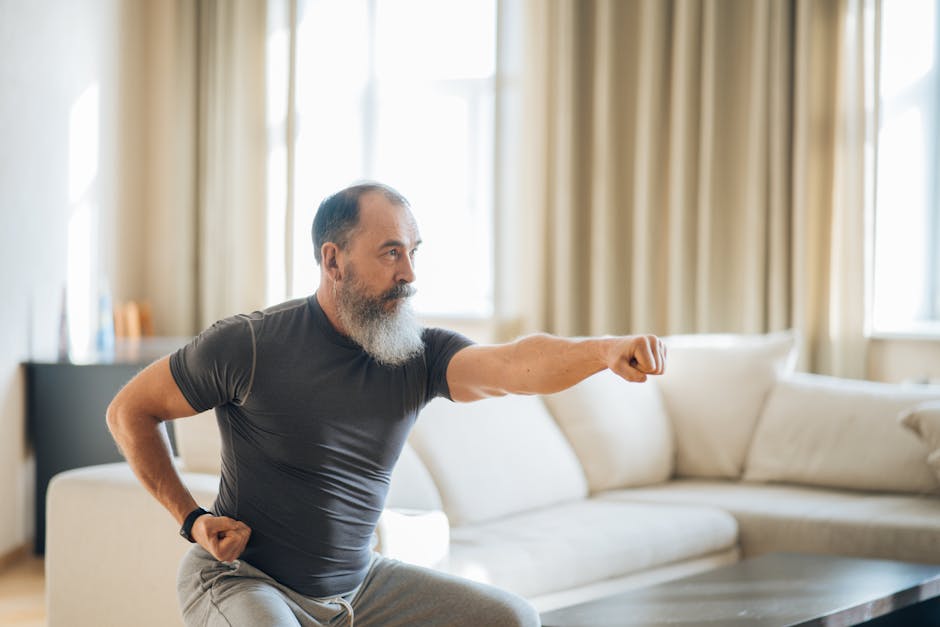How Regular Exercise Contributes to Self-Care and Longevity
Regular exercise has long been recognized as a cornerstone of maintaining physical health, but its benefits extend far beyond just the body. Engaging in consistent physical activity plays a vital role in self-care, boosting mental well-being, and fostering a longer, more fulfilling life. Numerous studies confirm that exercise not only helps in managing weight and improving cardiovascular health but also reduces stress, enhances mood, and increases overall life satisfaction.
Incorporating exercise into daily routines is more than just a fitness trend, it's an essential practice for longevity. From strengthening muscles and bones to regulating sleep patterns and supporting emotional resilience, the effects of regular physical activity ripple through every aspect of our lives. Understanding these benefits can empower individuals to adopt sustainable habits that promote both short-term self-care and long-term vitality.
Physical Health Benefits of Regular Exercise
Exercise directly impacts various aspects of physical health, contributing to overall wellness. Regular aerobic activities such as walking, jogging, or cycling improve heart health by increasing circulation and lowering blood pressure. Strength training exercises help build muscle mass, which is particularly crucial as we age and naturally lose muscle strength. Furthermore, engaging in physical activity enhances flexibility and balance, reducing the risk of falls and injuries in older adults.
- Improved cardiovascular function and reduced risk of heart disease.
- Enhanced bone density through weight-bearing exercises like walking or dancing.
- Boosted immune system function by promoting better circulation of white blood cells.
A review published by the Mayo Clinic supports these claims, highlighting that regular physical activity reduces the likelihood of developing chronic illnesses such as type 2 diabetes and certain cancers (Mayo Clinic).
Mental Health and Emotional Well-Being
The mental health benefits of exercise are just as significant as the physical ones. Activities like yoga, running, or even a brisk walk release endorphins, natural mood lifters that combat stress and anxiety. Exercise has been shown to alleviate symptoms of depression by providing a healthy outlet for negative emotions while boosting self-esteem through personal achievements.
Exercise improves cognitive functions such as memory and focus. Studies from Harvard Medical School suggest that consistent exercise may reduce the risk of developing neurodegenerative diseases like Alzheimer’s (Harvard Medical School). For those juggling work-life balance or academic pressures, incorporating physical activity can serve as an effective tool for managing mental load.

The Role of Exercise in Self-Care Practices
Self-care isn’t limited to indulgent spa days or occasional treats; it encompasses practices that nurture long-term well-being. Exercise stands out as one of the most impactful forms of self-care due to its multifaceted benefits. Whether it’s a morning run to set a positive tone for the day or a group fitness class that fosters social connections, physical activity promotes holistic wellness.
- Helps establish routine and discipline.
- Encourages mindfulness when paired with activities like yoga or tai chi.
- Provides opportunities for community engagement through team sports or fitness groups.
Exercise and Longevity: A Proven Link
Scientific evidence strongly supports the link between regular exercise and increased lifespan. According to research from the National Institute on Aging, individuals who maintain an active lifestyle tend to live longer than their sedentary counterparts (National Institute on Aging). Physical activity contributes to longevity by mitigating risk factors such as obesity, high cholesterol levels, and chronic inflammation, conditions often associated with premature aging.
Even modest efforts can yield substantial benefits. A study published in The Lancet highlights that just 15 minutes of moderate exercise per day can increase life expectancy by three years (The Lancet). The key lies in consistency rather than intensity, making it accessible for individuals at all fitness levels.
Sustainable Ways to Incorporate Exercise Into Daily Life
Adopting an active lifestyle doesn’t have to be overwhelming. Small changes can lead to big results over time. Here are some practical tips:
- Set realistic goals: Start with achievable milestones to build momentum.
- Find activities you enjoy: Whether it’s dancing, hiking, or swimming, enjoyment increases adherence.
- Create accountability: Partnering with a friend or joining a fitness group can help maintain consistency.
- Incorporate movement into daily routines: Opt for stairs instead of elevators or take short walks during breaks at work.
The American Heart Association recommends at least 150 minutes of moderate aerobic activity per week for adults (American Heart Association). Breaking this into manageable sessions makes it easier to stick with over the long term.
Regular exercise transcends its traditional perception as merely a means to improve physical appearance or fitness level. It is an essential component of self-care and longevity that nurtures both body and mind. By understanding its profound benefits and integrating it into everyday life, individuals can pave the way for healthier living now while investing in their future well-being.